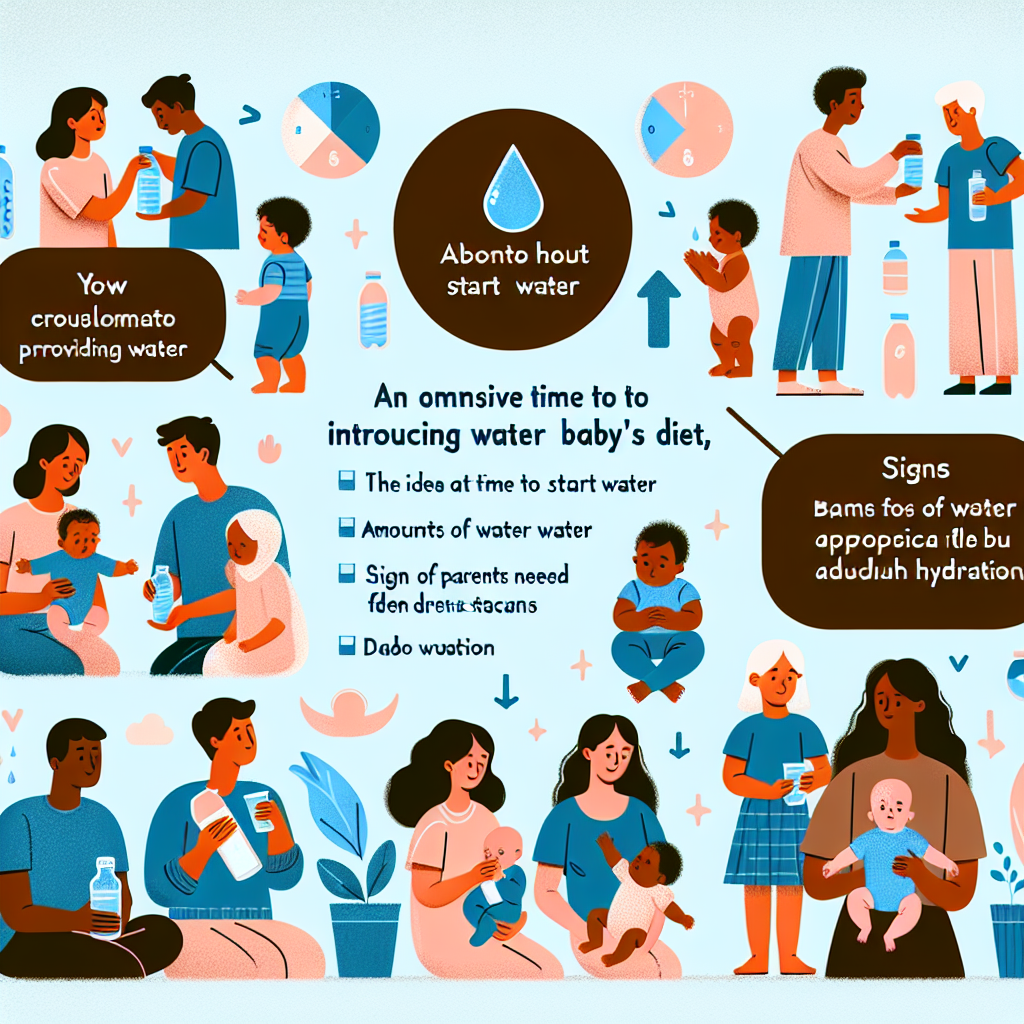When to Give Babies Water: A Practical Guide
Becoming a parent is the beginning of a journey full of joy, but also of questions. One of the most common dilemmas of new parents is related to the baby's diet and, in particular, the right time to introduce water into his diet. In this article, you will discover essential information about when and how to give water to your little one, for a healthy and balanced growth.
Baby Development and the Need for Water
To understand when to give water to babies, it is important to have a perspective on their development. The first months of life are characterized by an exclusive diet with breast milk or formula, which ensures all the moisturizing and nutritional needs of the newborn. Taking these aspects into account, the introduction of water into the baby's diet should be a carefully monitored process and adapted to each individual child.
Introduction of Water: General Recommendations
Most pediatric experts agree that babies should only be given water after 6 months of age. This is because young children's kidneys are not yet developed enough to properly process a large amount of fluid. Let's take an in-depth look at the key moments when water becomes important in your baby's diet.
Motor Development
Even though babies don't need extra water until they're 6 months old, it's essential to start preparing them for its introduction. From around 4 or 5 months of age, babies begin to explore and play with different objects, this is an ideal stage to introduce them to the training cup or cup. Learning to drink from these containers will make the transition to drinking water easier later.
Language development
As the baby begins to experiment with sounds and words, he may show signs that he is ready for the introduction of water. Using words or gestures to express thirst can be an indicator that it's time to start offering small amounts of water, especially if this happens around 6 months of age.
Introduction of Solid Food
Another sign that the baby is ready for water is the start of solid food. At this stage, the baby will need more water to help digest new, dense foods. It is important to remember that water should not replace milk feeding sessions, but rather complement the baby's hydration needs.
Signs of Dehydration in Babies
Whether it's a hot summer day, illnesses that can lead to dehydration, such as a cold or gastroenteritis, it's essential to recognize the signs of dehydration in children. These may include lethargy, decreased number of wet nappies, crying without tears or dry lips and mouth. In these cases, consultation with the pediatrician is imperative to establish the appropriate hydration plan.
How Much Water Is Needed?
After the age of 6 months and the introduction of solid food, the baby may need about 120-240 ml of water per day, in addition to breast milk or formula. This volume should be adjusted depending on the climatic conditions, physical activity and general health of the child.
Recommendations and Tips for Parents
To make sure your baby stays well hydrated, here are some helpful tips: - Introduce water gradually, with a few sips a day, and observe how the child responds. - Choose a training cup or sippy cup that will facilitate your baby's transition from sucking to swallowing. - Monitor the amount of water consumed to avoid suppressing the appetite for milk and solid foods. - Always use quality water that is safe to drink and at room temperature or slightly warmed for baby's comfort. - Avoid adding sugar, juice or flavorings to your baby's water, as these can damage developing teeth and lead to unhealthy eating habits.
Conclusion
When can water be given to babies is a question that every parent must answer with care and information. By following the recommendations of specialists and observing the individual needs of your child, you can ensure a smooth transition to healthy hydration that supports their harmonious development. Do not hesitate to consult your pediatrician for personalized advice and to ensure that both your baby's diet and hydration are optimal and balanced. In this way, you will help to create a solid foundation for a healthy lifestyle, right from the first months of your little one's life.














































































































































